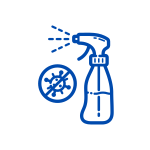
Prevention is better than cure, vaccinate for yourself and others
Pneumococcus is a bacterium commonly found in the respiratory tract, even healthy people may become carriers of pneumococcus. Pneumococcal infection can also cause sinusitis and otitis among people with strong immunity; people with weak immunity are more likely to be infected with serious diseases such as pneumonia, septicemia and meningitis. Children under the age of 5 and elderly aged 65 and above are more susceptible to pneumococcal infection. Therefore, pneumococcal vaccination is recommended, which is one of the most effective ways to prevent pneumococcal disease.
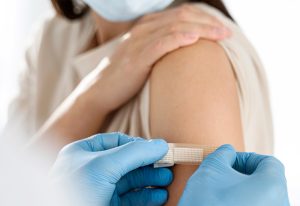
Swindon Medical provides PCV13 and PPV23 Vaccination
As the drug resistance of pneumococcus is getting stronger, antibiotic treatment is not the most safeguarding treatment, so prevention is more important than cure! Swindon Medical provides PCV13 and PPV23 vaccination, which can protect against 13 and 23 serotypes of pneumococcus respectively.

Why should one receive the pneumococcal vaccine?
Invasive pneumococcal disease is usually more serious in infants and the elderly. Pneumococcal conjugate vaccines are effective in preventing severe invasive pneumococcal infections (such as meningitis, bacteremic pneumonia and septicemia) caused by the serotypes of pneumococci included in the vaccine. Young children are at high risk and it is recommended that they get vaccinated. The PCV13 is included in the Hong Kong Childhood Immunisation Programme.
For details about pneumococcal infection, please visit the website of the Centre for Health Protection: https://www.chp.gov.hk/en/healthtopics/content/24/10584.html
PCV13 | PPSV23 | |
Suitable for | Infants older than 6 weeks and high-risk adults High-risk | individuals who are 2 years or older |
Number of Serotypes | 13 types (can cover invasive serotype 3 and drug-resistant serotypes 6A and 19) | 23 types (does not cover serotype 6A) |
Inoculation Method | Intramuscular Injection | Intramuscular Injection |
Number of Doses | Newborn babies: 1 dose over 2 years old | High-risk individuals who are 2 years or older: 1 dose |
Number of Doses for Newborns
PCV13
6 weeks and older
3 doses (2, 4 and 12 – 15 months old)
More than 7 months old
3 doses
(Complete the vaccination within about 6 months)
1 – 2 years old
2 doses
(2 doses scattered across 2 months or more)
PCV13, PPSV23
Aged 2 and above: only 1 dose
High-risk individuals who are 2 years or older should inoculate with PPV23 one year after receiving PCV13
*From July 2019 onwards, the Hong Kong Department of Health changed the free PCV13 vaccination for children born in 2019 and later from 4 doses to 3 doses, which means reducing the 3rd dose given at the age of 6 months. Parents can choose to give their baby a supplementary dose when they are 6 months old.
Pneumococcus can kill!
Vaccination against Pneumococcus to safeguard your health
Contact us now to make an appointment
Persons at high risk of Pneumococcus Infection
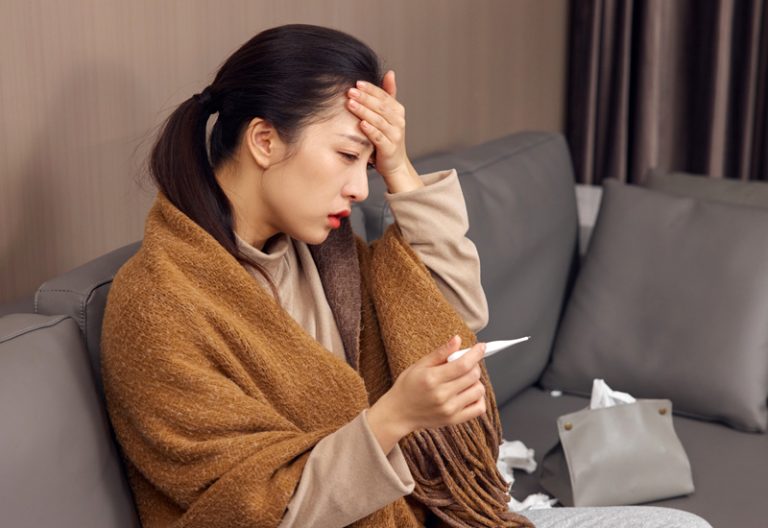
Symptoms of Pneumococcal Infection
Pneumococcus can be transmitted through droplets and contact with respiratory secretions; direct contact with patients is another mode of transmission. Pneumococcus is almost omnipresent and pneumococcus infection may lead to many different diseases, including:
- Meningitis: This is a serious pneumococcal infection. Patients usually develop symptoms such as fever, neck stiffness and confusion. It can lead to hearing loss and even death.
- Pneumonia: Patients will develop symptoms such as fever, shortness of breath, chills, and cough with phlegm. Severe cases can result in death.
- Otitis Media: Symptoms include fever and ear pain, and there may be secretions from the ear. Patients with recurrent symptoms may suffer from hearing loss.
- Bacteremia and Septicemia: joint pain and chills may occur, and simultaneous infections in other parts of the body may occur, such as pneumonia and meningitis.
Prevention of Pneumococcus
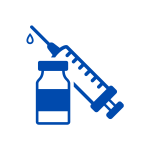
1. Pneumococcal Vaccination
Newborn infants should be vaccinated according to the recommendations of the “Hong Kong Childhood Immunisation Programme”. Parents can consult their family doctors or Maternal and Child Health Centres of the Department of Health for details.
Elderly people aged 65 or above should also receive pneumococcal vaccination. They can receive free or subsidized vaccinations under the “Government Vaccination Programme” or the “Vaccination Subsidy Scheme”.
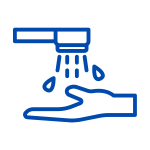
2. Maintaining Good Personal Hygiene
Keep your hands clean at all times, especially before touching your mouth, nose, or eyes; after touching public facilities such as handrails or doorknobs; or when hands are contaminated with respiratory secretions, such as after coughing or sneezing. Wash your hands with liquid soap and water, rub your hands for at least 20 seconds, rinse with water and dry with paper towels or a hand dryer. If there are no hand washing facilities, or when your hands are not visibly dirty, use 70 to 80% alcohol-based handrub is also effective.
Cover your mouth and nose with a tissue when sneezing or coughing, dispose of the used tissue in a rubbish bin with a lid, then wash your hands thoroughly.
When symptoms of respiratory infections develop, wear a mask, refrain from going to work or school, avoid going to crowded places, and seek medical consultations as soon as possible.
Maintain a balanced diet, exercise regularly, get enough rest, do not smoke and avoid alcohol to develop good immunity.
